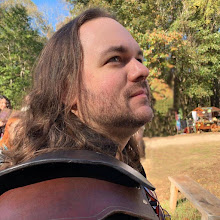Light is the left hand of darkness and darkness the right hand of light. Two are one, life and death, lying together like lovers in kemmer, like hands joined together, like the end and the way..
I first heard about this book from a magazine on an airplane. No, not SkyMall. I forget which airline it was, maybe American, or United, but it had an article in their monthly magazine about good Science Fiction novels. I've probably read many more fantasy books than I have Sci-fi, but I've read a few and I really enjoy Star Trek, so the draw for this type of fiction is still there. This book was listed in that article, and it looked interesting, mentioning a genderless people and political overtones. I took the article out of the magazine to help me remember to get the book at the next opportunity. I think that was a year or so ago, maybe more.
More recently, my wife and I watched The Jane Austen Book Club. The movie itself was really good, but more relevantly, one of the characters, Grigg, was a Sci-fi fan and and a sub plot involved him trying to get a women to read The Left Hand of Darkness. Of course, I suddenly remembered I had never taken the time to read it myself and resolved to do so. I often have time to read now that I spend about 2 to 3 hours each day on the Boston subway and bus system to and from work.
The book was different than what I had expected, but it really was a good book. The plot revolves around an man from a group of planets and peoples known as the Ekumen who is sent to a planet called Gethen where the inhabitants are neither male nor female. His mission is to get them to join the Ekumen to share knowledge, goods, and information. We follow his failures and accomplishments in this mission, and his befriending of the people of the planet, and how he relates to idea of their not being male or female.
The book explores a world where none of the problems or comparisons that we see show up between male and female has ever occurred. Everyone is equal, and able to participate in work, play, politics and life without being hung up on male or female roles. They have their own issues and political powers of course, but they are derived of different natures. It may be of interest to note that on Gethen, there is no word for war, and there has never been a war. There have been fights, skirmishes, assassinations, and murder, but never on a large scale. This may in part be to Gethen being a planet covered in an ice age.
It was a really interesting read, and I don't do it justice in my few words about it. It's been around since 1969, so it's been reviewed and pondered over and over by smarter people that delve a lot more in to its message or meaning. One thing that I had a hard time with is that even though the people have no gender, the pronouns he and him are used extensively to refer to the people. The reason is that 'it' is dehumanizing and 'he' is less identifying than 'she' is, historically. The Gethenians themselves have pronouns that cannot be translated, but using made up pronouns was thought to be laborious for the reader.
Subscribe to:
Post Comments (Atom)


No comments:
Post a Comment